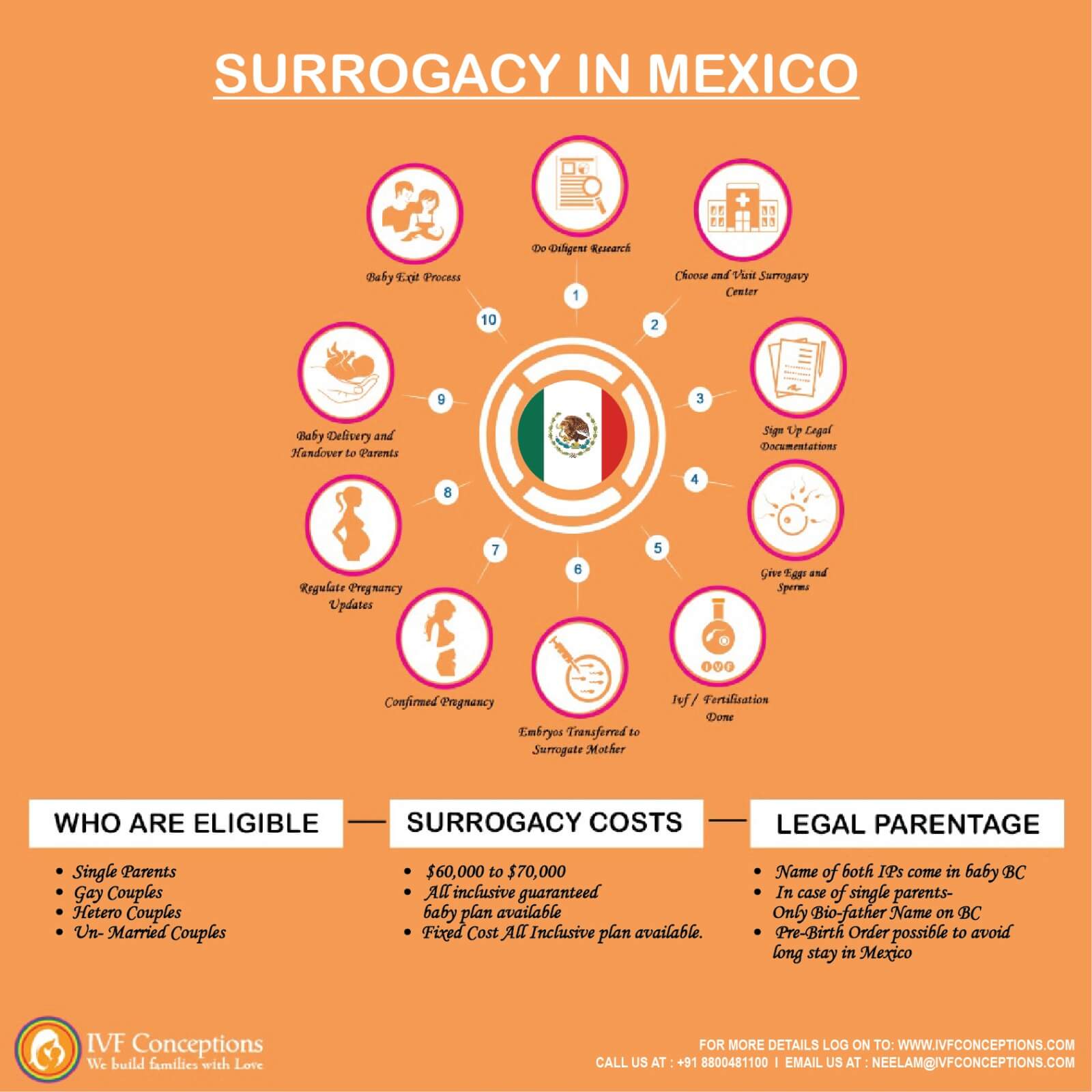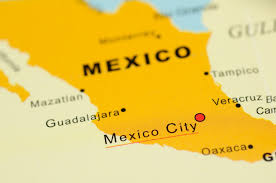Understanding the legal framework is crucial when you are opting for cross-border surrogacy, same goes if you are planning to do surrogacy in Mexico. Mexico’s surrogacy laws vary by state, and navigating them requires careful planning. Working with reputable agencies and local attorneys ensures that every step is handled with expertise and care.
This guide provides a clear, step-by-step breakdown of the process to obtain birth certificate after surrogacy in Mexico. From documenting your baby’s citizenship to securing a passport, we cover it all. Our goal is to offer actionable advice while addressing the emotional and legal nuances of this journey.
Whether you’re an intended parent or exploring surrogacy options, this guide is designed to support you. Let’s navigate this path together, ensuring your family’s future is secure and filled with joy.
Key Takeaways
- Understand the legal framework for surrogacy in Mexico.
- Work with reputable agencies and local attorneys.
- Prepare for documentation like citizenship and passports.
- Be aware of potential delays and legal nuances.
- Ensure emotional and legal support throughout the journey.
Introduction
Navigating the surrogacy journey in Mexico requires careful planning and reliable information. For intended parents, this path to building a family is both rewarding and complex. The legal landscape is evolving, presenting opportunities alongside challenges.
One of the key aspects is ensuring accurate documentation. Administrative delays and legal uncertainties can arise, making it essential to work with experienced professionals. This guide aims to simplify the process, offering step-by-step insights and expert-backed advice.
From understanding local laws to preparing for court procedures, every detail matters. The goal is to provide a supportive resource that addresses both the emotional and legal aspects of this journey. With the right guidance, intended parents can navigate this path confidently.
Mexico’s surrogacy framework has seen significant changes in recent years. The Supreme Court’s rulings have reinforced the rights of intended parents, ensuring a more secure process. However, staying informed and prepared remains crucial.
This guide is designed to help you every step of the way. Whether you’re just starting or nearing the final stages, our focus is on clarity and support. Together, we’ll ensure your journey to building a family is as smooth as possible.

Understanding Surrogacy in Mexico
Mexico’s approach to surrogacy has seen notable changes in recent years. The journey to building a family through this method is shaped by a unique blend of legal, cultural, and medical factors. Understanding this context is essential for intended parents navigating the process.
Historical and Legal Context
Surrogacy in Mexico has a complex history. Early restrictions limited its accessibility, creating challenges for intended parents. Over time, legal interpretations evolved, particularly with the 2021 Supreme Court decision. This ruling declared surrogacy a protected medical procedure, marking a significant shift.
Historically, intended parents faced hurdles in documenting parental rights. The lack of a uniform legal framework added to the complexity. However, recent changes have aimed to protect the rights of all parties involved—intended parents, surrogates, and the child.
Recent Supreme Court Impacts
The 2021 Supreme Court decision was a turning point. It reinforced the rights of intended parents and provided greater legal clarity. This ruling has helped streamline the process, though challenges remain. State laws continue to play a crucial role, with some states like Tabasco and Sinaloa offering clearer regulations.
Egg donation has also become a significant part of the conversation. As surrogacy arrangements are limited to gestational surrogacy, understanding the role of egg donation is essential. This medical aspect adds another layer to the process.
Cultural and international considerations are equally important. Mexico’s role in the global surrogacy landscape continues to evolve. For intended parents, staying informed about both historical and current practices is key to navigating this journey successfully.
Birth certificate process after surrogacy in Mexico
Securing the necessary documents for your child is a critical step in the surrogacy journey. This phase ensures your child’s legal identity and sets the foundation for future citizenship and travel. Understanding the steps involved can help intended parents navigate this process with confidence.
The first step is to gather all required documentation. This includes notarized contracts, medical records, and proof of parental rights. Accurate paperwork is essential to avoid delays. Coordination with local courts and U.S. consulates is often necessary to meet both local and international legal requirements.
Delays can occur due to administrative backlogs or incomplete documentation. Working closely with experienced agencies and attorneys can help streamline the process. Clear communication ensures that all parties are aligned and that the necessary steps are followed promptly.

Once the documentation is complete, the next step is to apply for the birth certificate. This legal document is crucial for establishing your child’s identity and citizenship. It also serves as a key record for future travel and legal purposes.
Below is a summary of the key steps involved:
| Step | Description |
| 1. Gather Documentation | Collect notarized contracts, medical records, and proof of parental rights. |
| 2. Coordinate with Authorities | Work with local courts and U.S. consulates to meet legal requirements. |
| 3. Apply for Birth Certificate | Submit all documentation to obtain the legal record of your child’s identity. |
| 4. Plan for Future Steps | Use the birth certificate to secure citizenship and prepare for travel. |
Ensuring your child’s legal identity is a milestone in this journey. With the right preparation and support, intended parents can navigate this process smoothly. Clear communication and accurate documentation are key to success.
Legal Considerations for Intended Parents
Legal clarity is essential for intended parents navigating surrogacy agreements. Ensuring your rights are protected requires a thorough understanding of the law and proper documentation. This section outlines the key legal steps to safeguard your journey.
Surrogacy Agreements and Parental Rights
Surrogacy agreements are the foundation of parental rights. These contracts must be notarized and clearly outline the roles and responsibilities of all parties. Key documents include:
- Notarized surrogacy contracts
- Medical records confirming the surrogacy arrangement
- Proof of parental rights, such as pre-birth orders
Pre-birth orders are particularly important. They establish the intended parents as the legal parents before the child is born. This step helps avoid complications and ensures a smooth transition.
DNA Testing and Contractual Documentation
DNA testing may be required to establish a genetic relationship between the intended parent and the child. Accredited laboratories should be used to ensure accurate results. This step is crucial for:
- Confirming biological connections
- Supporting citizenship applications
- Strengthening legal claims to parental rights
Accurate documentation is equally important. Contracts must be detailed and enforceable, protecting the rights of all parties involved. A well-structured surrogacy program ensures that every legal requirement is met.
By focusing on these legal considerations, intended parents can navigate the surrogacy journey with confidence. Clear agreements and proper documentation are the keys to protecting your family’s future.
Navigating Mexican Court Procedures
Navigating court procedures in Mexico can be a complex yet manageable task for intended parents. Understanding the legal landscape is essential to ensure a smooth journey. Each state in Mexico has its own approach to handling surrogacy cases, which can lead to variations in timelines and requirements.
One of the key challenges is the potential for delays. Court procedures can sometimes take several weeks to complete, depending on the jurisdiction. For example, states like Tabasco and Sinaloa have more streamlined processes, while others may require additional documentation or hearings.
Local courts interpret surrogacy agreements differently across jurisdictions. This means that what works in one state may not be applicable in another. To avoid complications, it’s crucial to work with local experts who understand the nuances of the law in your specific area.
“Patience and preparation are key when dealing with legal systems,” says a seasoned attorney specializing in surrogacy cases. Consulting with experienced professionals can help you navigate the process more efficiently and reduce the risk of unexpected hurdles.
Recent cases highlight the importance of understanding state-specific practices. For instance, some courts may require additional proof of parental rights, while others may prioritize genetic testing. Being aware of these potential pitfalls can save time and ensure a smoother experience.
Below is a summary of key considerations when navigating court procedures:
| Consideration | Details |
| State Variations | Procedures differ by state; some are more streamlined than others. |
| Potential Delays | Cases can take several weeks to resolve, depending on the jurisdiction. |
| Local Expertise | Consulting with local attorneys ensures compliance with state-specific laws. |
| Documentation | Additional proof of parental rights or genetic testing may be required. |
By staying informed and working with trusted professionals, intended parents can navigate the court system with confidence. Understanding the local law and preparing for potential delays are essential steps in this journey.
Steps to Document Your Child’s Citizenship
Establishing your child’s citizenship is a vital step in the surrogacy journey. This process ensures their legal identity and opens doors to future opportunities. By following a structured approach, you can navigate this phase with confidence.
Preparing Required Documentation
The first step is gathering all necessary documents. This includes proof of your citizenship, such as a valid U.S. passport or birth certificate. Medical records and notarized surrogacy agreements are also essential. Accurate paperwork is key to avoiding delays.
Additional documents may include marriage certificates, divorce decrees, or evidence of physical presence in the U.S. DNA testing might be required if assisted reproductive technology was used. Ensure all documents are original or certified copies.

CRBA and Embassy Appointment Guidelines
Once your documents are ready, the next step is applying for a Consular Report of Birth Abroad (CRBA). This can be done online through MyTravelGov. Complete the application form and upload the required documents. Double-check your submission to avoid errors.
After submitting the CRBA application, schedule an appointment at the nearest U.S. embassy or consulate. Arrive 15 minutes early and bring all original documents and photocopies. Be prepared for an interview to verify the information provided.
Here’s a quick checklist for your embassy appointment:
- Original and photocopies of all required documents
- Completed CRBA application form
- Passport-style photo of your child
- Payment for the application fee ($100)
Delays can occur due to administrative backlogs or incomplete documentation. Working with experienced professionals can help streamline the process and reduce waiting time.
By following these steps, you can ensure your child’s citizenship is documented efficiently. This milestone is a crucial part of building your family’s future.
The Role of Local Attorneys in Surrogacy Cases
 Working with local attorneys is a cornerstone of a successful surrogacy journey. Their expertise ensures compliance with local laws and helps navigate the complexities of the program. For intended parents, this legal support is invaluable.
Working with local attorneys is a cornerstone of a successful surrogacy journey. Their expertise ensures compliance with local laws and helps navigate the complexities of the program. For intended parents, this legal support is invaluable.
Local attorneys play a critical role in drafting surrogacy contracts. These agreements outline the rights and responsibilities of all parties involved. A well-drafted contract protects the interests of intended parents and surrogates alike.
Choosing the right agency is equally important. Reputable agencies often have partnerships with experienced legal professionals. This collaboration ensures that every step of the journey is handled with care and precision.
Knowledgeable attorneys also help mitigate legal risks. They guide intended parents through court procedures and ensure all documentation is accurate. This reduces the risk of delays or complications.
Here are key qualities to look for in a legal team:
- Experience in handling surrogacy cases within the country
- A solid reputation for ethical practices
- Clear communication and accessibility
- Proven ability to navigate state-specific laws
By partnering with the right legal team, intended parents can focus on the emotional aspects of their journey. Local attorneys provide the expertise needed to ensure a smooth and secure experience.
Surrogacy Cost Breakdown in Mexico
Financial planning is a critical aspect of building a family through surrogacy. Understanding the costs involved helps intended parents prepare for this life-changing journey. Surrogacy expenses can vary widely depending on location, medical procedures, and legal requirements.
In Mexico, standard programs typically range from $50,000 to $70,000 USD. This includes agency fees, medical expenses, and surrogate compensation. However, additional costs like legal fees and administrative charges can add up over the year.
Budgeting Tips and Surrogacy Cost Estimates
Creating a detailed budget is essential for managing surrogacy expenses. Start by listing all potential costs, including:
- Agency fees: $10,000 to $20,000
- Medical procedures: $25,000 to $35,000
- Surrogate compensation: $20,000 to $30,000
- Legal fees: $8,000 to $10,000
It’s also important to account for unexpected expenses. Setting aside a contingency fund can help cover unforeseen costs like additional medical care or travel expenses.
Comparing U.S. and Mexican Surrogacy Fees
Surrogacy in the U.S. is significantly more expensive, with average costs ranging from $130,000 to $160,000. In contrast, Mexico offers a more affordable option, with total expenses often below $70,000. This makes it an attractive choice for many couples.
Here’s a quick comparison of key expenses:
| Expense | U.S. Cost | Mexico Cost |
| Agency Fees | $20,000 – $30,000 | $10,000 – $20,000 |
| Medical Procedures | $25,000 – $35,000 | $25,000 – $35,000 |
| Surrogate Compensation | $55,000 – $75,000 | $20,000 – $30,000 |
| Legal Fees | $8,000 – $10,000 | $8,000 – $10,000 |
While the cost of surrogacy in Mexico is lower, it’s crucial to work with reputable agencies and legal professionals. This ensures transparency and protects your investment throughout the program.
By understanding the financial landscape, intended parents can make informed decisions and focus on the emotional aspects of their journey. Proper planning and budgeting are key to a successful surrogacy experience.

Accessibility and Options for International Intended Parents
Recent legal changes have made surrogacy more accessible to a global audience. For intended parents, this means expanded opportunities to build their families. The 2021 Supreme Court decision in Mexico reinforced the rights of all family types, including queer families and single parents.
Mexico offers a range of options tailored for international clients. These programs are designed to meet the unique needs of foreign couples. Whether you’re from the U.S. or another country, the legal framework ensures a supportive environment.
One of the key benefits of pursuing international surrogacy in Mexico is affordability. Costs are significantly lower compared to the U.S., making it an attractive choice. However, challenges such as navigating state-specific laws and documentation requirements remain.
Reputable agencys play a crucial role in guiding intended parents through this journey. For example, IVF Origen Agency has a 94.8% success rate and has assisted clients from over 70 countries. Their expertise ensures a smoother experience for international clients.
Here are some key considerations for international intended parents:
- Understand the legal requirements in your specific state.
- Work with experienced agencies to navigate the process.
- Prepare for potential delays due to administrative procedures.
- Ensure all documentation is accurate and complete.
Legal guidance is a key part of the surrogacy journey. Local attorneys help draft contracts and ensure compliance with state laws. This support is essential for protecting your rights and ensuring a successful outcome.
By choosing Mexico for international surrogacy, intended parents can access affordable and ethical programs. With the right preparation and support, this journey can be a rewarding experience for families worldwide.
 How to Bring Your Baby Home Legally from Mexico
How to Bring Your Baby Home Legally from Mexico
Bringing your baby home from Mexico involves navigating specific legal steps to ensure a smooth transition. This process includes securing U.S. citizenship and a passport for your child. Following official procedures is essential to avoid delays and complications.
Citizenship and Passport Application Process
The first step is applying for a Consular Report of Birth Abroad (CRBA). This document confirms your child’s U.S. citizenship. To apply, you’ll need to schedule an appointment at the nearest U.S. embassy or consulate. Arrive prepared with all required documents to ensure a smooth process.
Required documentation includes proof of parental citizenship, such as a U.S. passport or birth certificate. Medical records and notarized surrogacy agreements are also necessary. If assisted reproductive technology was used, DNA testing may be required to establish a genetic relationship.
Here’s a checklist for your embassy appointment:
- Original and photocopies of all required documents
- Completed CRBA application form
- Passport-style photo of your baby
- Payment for the application fee ($100)
Once the CRBA is approved, you can apply for your child’s U.S. passport. This step is crucial for your return home. The application process typically takes 4-6 weeks, so plan accordingly.
Delays can occur due to administrative backlogs or incomplete documentation. Working with experienced professionals can help streamline the program and reduce waiting time. Clear communication ensures that all parties are aligned and that the necessary steps are followed promptly.
By following these steps, you can ensure your baby’s legal identity is established efficiently. This milestone is a crucial part of building your family’s future and ensuring a smooth return home.
Conclusion
Embarking on the journey to build a family through surrogacy is both rewarding and complex. This guide has outlined the essential steps, from understanding legal frameworks to securing your child’s citizenship. Proper documentation and expert legal counsel are critical to navigating this process smoothly.
FAQs for obtaining birth certificate for baby in Mexico

What is the legal status of surrogacy in Mexico?
Surrogacy is legal in certain Mexican states, but regulations vary. It’s crucial to work with local attorneys familiar with regional laws to ensure compliance.
How long does it take to obtain a birth certificate after surrogacy in Mexico?
The timeline can vary, but it typically takes several weeks to a few months, depending on court procedures and documentation requirements.
Do intended parents need DNA testing to establish parental rights?
Yes, DNA testing is often required to confirm biological parentage and secure legal recognition for intended parents.
What documents are needed to apply for a Consular Report of Birth Abroad (CRBA)?
Required documents include the child’s birth certificate, DNA test results, surrogacy agreement, and proof of U.S. citizenship for the intended parents.
Can same-sex couples pursue surrogacy in Mexico?
Yes, same-sex couples can pursue surrogacy in Mexico, but it’s essential to verify state-specific laws and work with supportive legal and medical teams.
What role do local attorneys play in the surrogacy process?
Local attorneys assist with drafting surrogacy agreements, navigating court procedures, and ensuring all legal requirements are met for parental rights and documentation.
How does the cost of surrogacy in Mexico compare to the U.S.?
Surrogacy in Mexico is generally more affordable than in the U.S., but costs vary based on medical care, legal fees, and agency services.
What steps are involved in bringing a baby home from Mexico?
Steps include obtaining a birth certificate, applying for a CRBA, securing a U.S. passport, and ensuring all travel documentation is in order.
Are there ethical guidelines for surrogacy in Mexico?
Ethical practices include ensuring proper care for surrogates, transparent agreements, and adherence to medical and legal standards.
What challenges might intended parents face in international surrogacy?
Challenges include navigating legal complexities, language barriers, and ensuring proper medical care throughout the surrogacy journey.
Source Links
- https://mx.usembassy.gov/surrogacy-art-and-dna-testing/ – Surrogacy and ART in Mexico
- https://completesurrogacy.com/surrogacy-in-mexico-for-foreigners/ – surrogacy in Mexico for foreigners (2025) | Complete Surrogacy Consulting Services
- https://www.uscis.gov/policy-manual/volume-12-part-h-chapter-3 – Chapter 3 – U.S. Citizens at Birth (INA 301 and 309)
- https://mx.usembassy.gov/consular-report-of-birth-abroad-crba-checklist-lista-de-verificacion-para-cita-de-informe-consular-de-nacimiento-en-el-exterior-crba/ – Consular Report of Birth Abroad (CRBA) checklist
- https://travel.state.gov/content/travel/en/legal/travel-legal-considerations/us-citizenship/Acquisition-US-Citizenship-Child-Born-Abroad.html – Obtaining U.S. Citizenship for a Child Born Abroad


 How to Bring Your Baby Home Legally from Mexico
How to Bring Your Baby Home Legally from Mexico